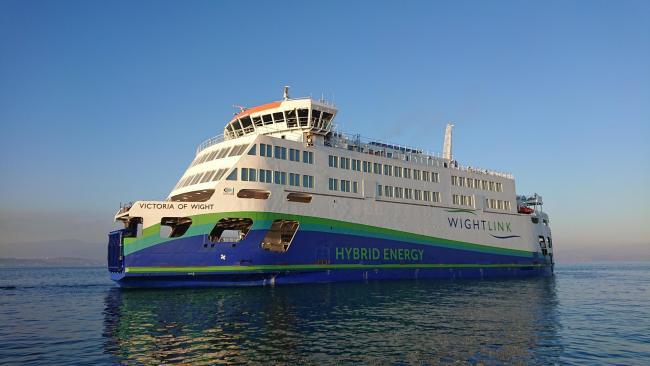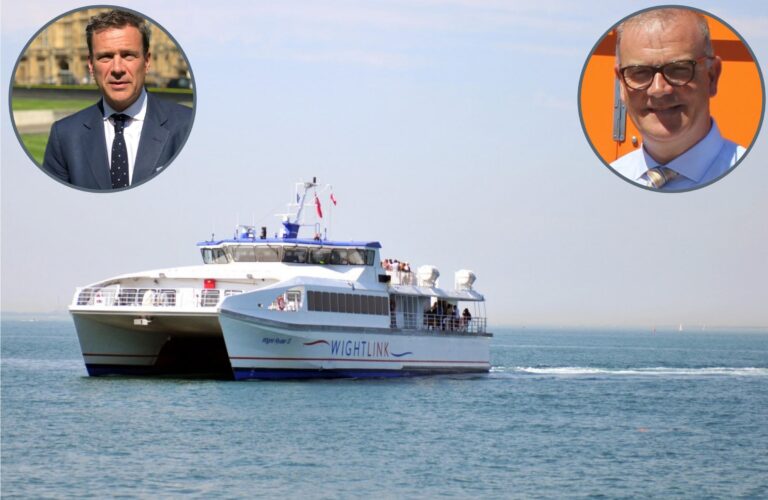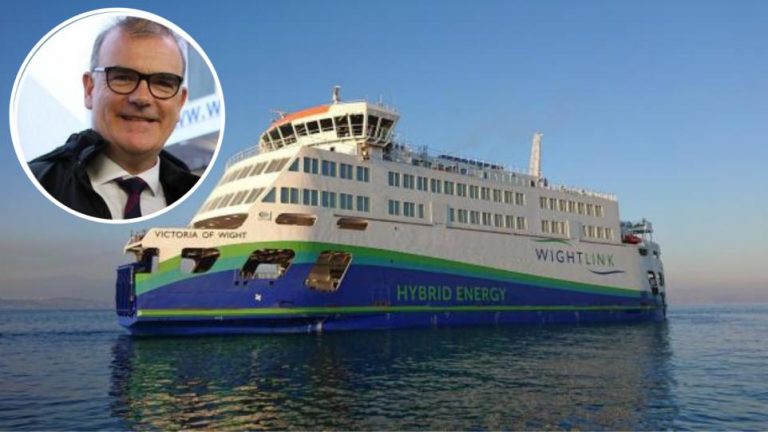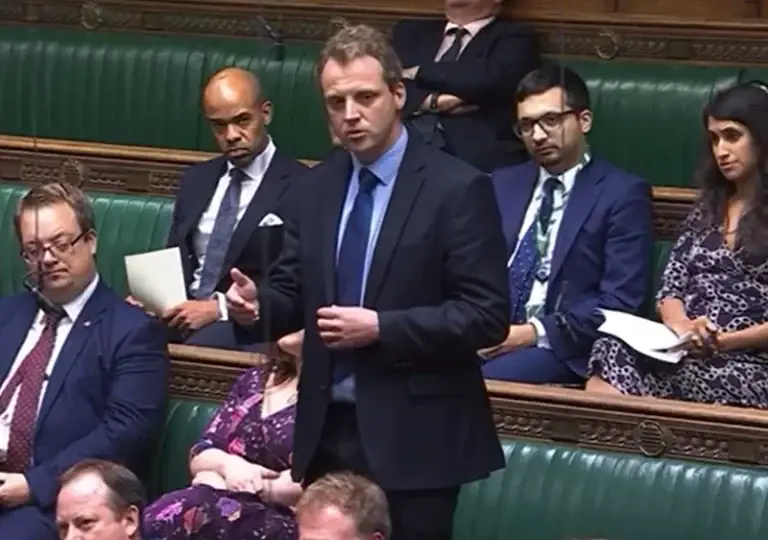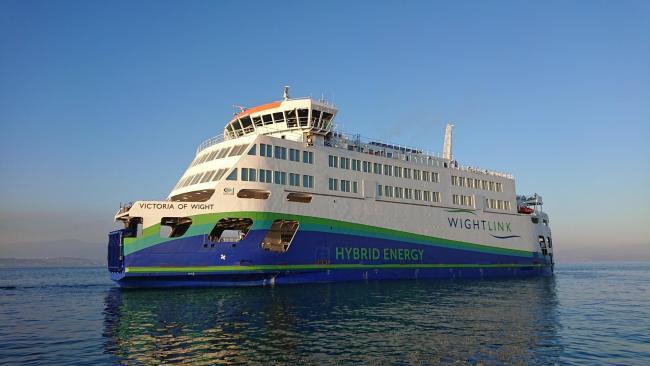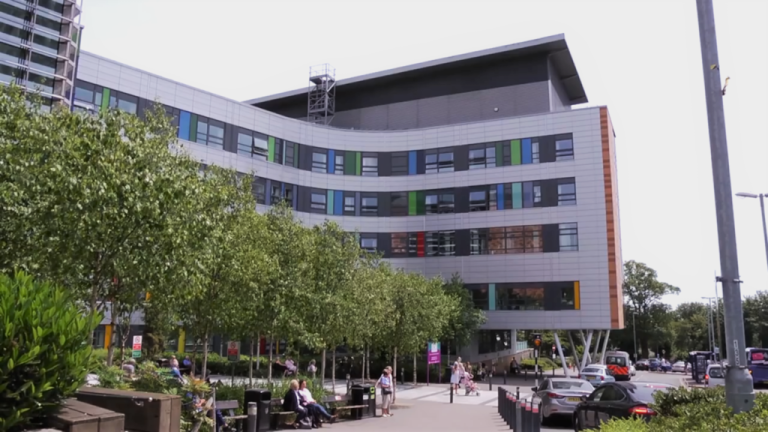“OUR FERRY LINKS HAVE BEEN HEAVILY EXPLOITED AND ISLANDERS ARE PAYING THE PRICE”
Island Echo always welcome letters to the editor, which may of course not reflect the views of the publication and its staff.
This article first appeared in the Island Echo – https://www.islandecho.co.uk/our-ferry-links-have-been-heavily-exploited-and-islanders-are-paying-the-price/
Letter to the editor – Tuesday 8th August 2023
“Keith Greenfield, the CEO and Director of Wightlink (WL) recently wrote some public statements which I believe are misleading and attempt to project an image of WL that does not reflect reality.
“In relation to why WL doesn’t pay tax, he stated “ … group accounts show that we have made losses in recent years which is why no corporation tax has been due” This gives the impression WL is making a loss. It’s not. As many know, WL as a stand-alone business makes millions and more than enough to sustain itself. Probably, in much the same way it and its predecessors did for the previous 140 years before the private equity firms (PEF) got hold of it. Although, to be clear as Mr Greenfield also stated “We pay all taxes, rates and rents that are due.”
“Unfortunately, Mr Greenfield failed to add that for every £1 WL pays in tax, they claim roughly £1.5 back in tax rebates. The group accounts that Mr Greenfield refers to are 5 holding companies (Arca Shipping, Arca Bidco, Arca Midco, Arca Holdco, Arca Luxco) and one parent company (Arca Topco) all created by the PEFs after purchasing WL. These newly formed non-operational companies are all connected to and centred around the only company that produces any income, Wightlink Ltd. At this point, it’s helpful to know a little about WL’s history of ownership. In 1995 WL was bought out by its management who then sold it in 2005 to a PEF.
“Unsurprisingly, this is where we start to see WL via its holding companies being subjected to growing losses and where the gradual decline in services and the hike in ferry fares begins. PEFs only buy businesses that are good investments. Basalt Infrastructure Partners and Fiera Infrastructure are the PEFs that currently own WL. The typical business model of a PEF is to first load the business they bought with debt. This is how they quickly maximise their return on investment. Then they work on ways to maximise cash coming out of the business, such as reducing the service.
“It’s not unusual for the PEF to then loan the money they stripped from the business back to the business charging high interest. No matter how well the business is doing, a PEF will ensure the accounts of the acquired business are making a loss. The advantage is a business that makes a loss won’t pay tax. This is essentially the story of WL since it went into private equity ownership.
“WL is now part of a group of companies that collectively show a loss through the accumulation of debt. So Mr Greenfield is correct, the group makes a loss, but that’s because, under this structure, it’s designed to make a loss.
“The group has a debt of just under £398,000,000 (and possibly much more). Some of this debt can likely be justified through the purchase of WL, the cost of a new ferry and terminal alterations, but as the group’s only operational company, it’s WL’s burden. Of that £398 million debt WL has to cover interest payments on a whooping £330,000,000 at 9.25% a year, set at a time when interest rates were among their lowest. The interest repayment on £330 million will make it a challenge for the group to generate profits in future years, unless they increase ferry fares considerably. Mr Greenfield went on to state he doesn’t receive dividend payments. Technically, this is true. It’s WL’s corporate owners that receive the dividends. WL Director’s payouts are classed as bonuses or remuneration or ‘contractual payments’ which he does receive, but like the dividends and interest payments they all come from WL’s profits.
“Aside from one bonus of £1,875,000 paid to WL Directors for the sale of 50% of WL to Fiera Infrastructure in June 2019. Although, according to pages 22/23 of the 2019 WL accounts, one Director (likely Mr Greenfield) was paid an additional £1.2 million bonus/contractual payment as a result of that sale bringing that particular Directors income that year to £1.55 million if you include his 2018/19 basic salary of £348,000. However, concerning why WL took public funds during the pandemic, Mr Greenfield claimed “There was indeed a very real risk that operators such as Wightlink would run out of cash”. This of course is the reason why WL took a staggering £7.3 million from the public purse in 2021/22. It’s worth noting shortly after that huge bonus was paid the need for more money from HM treasury arose.
“It appears if WL was run appropriately without deliberately evoking a loss, being stripped of cash and subjected to huge debts at high interest then it wouldn’t get into cash flow issues and require public handouts and millions in tax rebates. In the words of our own MP, “Wightlink, as a company, represent the unacceptable face of capitalism“. PEF’s methods of remodelling and taking financial advantage of businesses can be considered unethical, but not illegal. It’s just WL’s misfortune that it was sold to a PEF. For Basalt Infrastructure Partners, it seems WL is an opportunity to get its hands on millions of taxpayer money while paying its Directors millions for running the service down and bringing WL to its indebted financial knees.
“The FastCat timetable is a fine example of a service that has been run down from what it was 10/15 years ago, with the removal of half hourly crossing supporting commuters proving especially frustrating. Mr Greenfield might argue all is well, but never before has there been this level of protest among Islanders. I am told every prospective Conservative candidate for East Wight referred to the unacceptable situation with our ferry links in their final speeches to voters. Likewise, in addition to the many letters from Islanders and Island businesses such as Wight Karting all venting their anger, there is now also the ever-growing Wightlink User Group protesting that enough is enough.
“The truth is our ferry links have been heavily exploited since they went into private equity ownership and Islanders are paying the price in unnecessarily high fares and a reduced service, while the taxpayer is continually subsidising what is essentially a viable profit-making business in its own right. If, likewise, you feel enough is enough, and you haven’t already, then perhaps consider registering this feeling by subscribing to the Wightlink User Group on Facebook. They are working hard on behalf of all Islanders to get services back at reasonable prices.”
Karl Hunter
Isle of Wight

